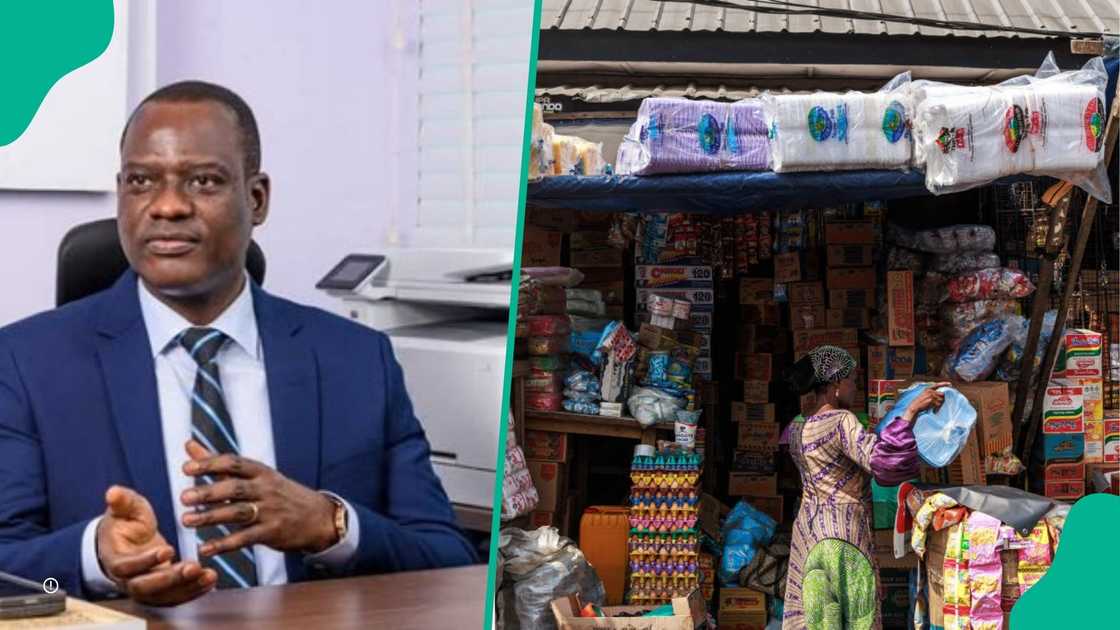Oyedele Highlights Key Benefits of GDP Rebasing to Nigeria's Economy
- Chairman of the Tax Reforms Committee, Taiwo Oyedele, has said that the GDP rebasing sends a strong signal to investors to take Nigeria seriously
- He expects that there will also be a Producer Cost Index (PCI) to help monetary policy interventions and provide accurate data on inflation
- He also expressed optimism that the bill will be passed in Q1 2025 and will bring much-sought relief to small businesses, and Nigerian residents
CHECK OUT: Education is Your Right! Don’t Let Social Norms Hold You Back. Learn Online with LEGIT. Enroll Now!
Legit.ng journalist Ruth Okwumbu-Imafidon has over a decade of experience in business reporting across digital and mainstream media.
Rebasing Nigeria’s economy sends a strong positive signal to investors, encouraging them to reconsider and take investment opportunities in Nigeria more seriously.
This is according to Mr Taiwo Oyedele, the Chairman of the Presidential Committee on Fiscal Policy and Tax Reforms.

Source: Facebook
Speaking at the Lagos Chamber of Commerce and Industry (LCCI) 2025 Economic Review and Outlook Conference in Lagos, Oyedele noted that rebasing the GDP is an economic adjustment that would positively impact the country’s projected tax-to-GDP ratio and the measurement of per capita income, thereby enhancing investor perception.
Oyedele noted that the Consumer Price Index (CPI) basket would also be rebased, which would help provide a clearer picture of inflation trends and offer a more accurate outlook on the country’s economic direction, The SUN reports.
He also assured that reforms would be implemented this year in areas such as budget processing, the medium-term expenditure framework, and the fiscal strategy paper to support the economic rebasing efforts.
NBS announced GDP rebase to include more activities
Recall that the National Bureau of Statistics (NBS) announced plans to rebase Nigeria’s Gross Domestic Product (GDP) and include areas that were not captured earlier, especially in the informal sector.
The new GDP will also use 2019 as the new base year, replacing the previous base year of 2010. This means prices from 2019 will be used as the new benchmark for GDP calculation.
Samuel Oyekanmi, who spoke to Legit.ng, explained that a lot of things have emerged over the last decade, and they need to be captured and quantified to reflect the actual value of the economy.

Read also
Telecom tariff hike: Subscribers to negotiate with NCC today as NLC, NANS threaten to protest
He said:
“You can see that the last time rebasing was done in 2014, agriculture accounted for about one quarter of the economy, as well as other big sectors like Telco and real estate. But over the years, where Nigerians are playing has increased. Technology was not that a big deal during the last rebasing in 2014, but now, many of the things we do now are in the tech space. There are also new sectors that merged over the years. There’s also fintech, entertainment and skit making and a lot of money going into those areas. They have to be captured in the GDP now, hence the rebasing.”
The GDP will thus be more realistic and reflective with the rebased GDP, capturing informal sectors and areas that were not captured.
Tax bill to be passed in Q1 2025
On the tax reform bills, Oyedele stated that ongoing engagements with key stakeholders have been fruitful, and progress is being made. He anticipates that the bills will be enacted into law by the end of the first quarter of 2025.
He said the tax reform bills contain important provisions with the potential to drive significant changes for the country, including business reforms, cost reductions, and tax reliefs. These measures are designed to ease burdens on small businesses, allowing them to thrive.
Looking ahead to 2025, Oyedele expressed optimism about the prospects for businesses, families, and individuals.
He believes that the outlook for the year is promising, as the federal government’s sound fiscal policies complement these reforms.
The chairman also predicted an increase in FX inflows, stable FX rates, and inflation moderating in 2025.
Beyond the Consumer Price Index (CPI), Oyedele indicated that the federal government may introduce a producer cost index in 2025 to enhance the measurement of monetary policy interventions and provide more accurate surveys on inflation.
Rebasing GDP throws light on hidden sectors
In related news, Legit.ng reported that several experts commended the NBS for including sectors like the Pension Funds Administrations in the rebased GDP.
They noted that capturing the activities of PFAs in the GDP was long overdue and is very important to have a better picture of the financial sector.
They said that the inclusion would lead to more interest and scrutiny in the sector, and expose hitherto unknown occurrences.
PAY ATTENTION: Сheck out news that is picked exactly for YOU ➡️ find the “Recommended for you” block on the home page and enjoy!
Source: Legit.ng





